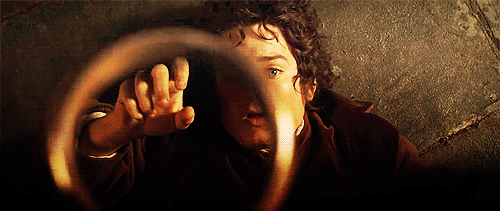The next book in George R. R. Martin’s fantasy series, A Song of Ice and Fire is going to be released (hopefully) next year, and I’m taking the time to write about just how this series has been not only popular, but changing the genre of fantasy.
 In 1937, J. R. R. Tolkien published The Hobbit, and by the time he finished his Lord of the Rings trilogy, he had laid the foundations of a new genre. In his works, he employed many fantasy archetypes in his story. For example, when you think of fantasy, the things that come to your mind are things like wizards, princesses, evil dragons, etc. This is because fantasy mostly uses Eastern European influence, which means copying things like their class structures, like kings, queens and knights. This also means using their folklore, drawing on stories of dragons, tales of valor, wizards, elves, and fairies. The central conflict should be about good versus evil; since fantasy stems from being mostly children’s stories, the story typically has a good hero to root for. Evil is depicted in a clear, monstrous form. Villains are not too human.
In 1937, J. R. R. Tolkien published The Hobbit, and by the time he finished his Lord of the Rings trilogy, he had laid the foundations of a new genre. In his works, he employed many fantasy archetypes in his story. For example, when you think of fantasy, the things that come to your mind are things like wizards, princesses, evil dragons, etc. This is because fantasy mostly uses Eastern European influence, which means copying things like their class structures, like kings, queens and knights. This also means using their folklore, drawing on stories of dragons, tales of valor, wizards, elves, and fairies. The central conflict should be about good versus evil; since fantasy stems from being mostly children’s stories, the story typically has a good hero to root for. Evil is depicted in a clear, monstrous form. Villains are not too human.
Tolkien took all the archetypes of fantasy and raised it up to create the subgenre of high fantasy. High fantasy is basically a fantasy book, but with larger, more sprawling worlds. Characters were different races, and served different kings, and the kings before those kings. Entire languages were created. Different races had different traditions, abilities, magical items, and styles of dress. Songs, histories, and lands were depicted in Charles Dickens level detail for each race in Tolkien’s Middle Earth. Since then, Tolkien has been the author whom most fantasy writers took inspiration from. High fantasy has remained largely static since then. Everyone wanted to emulate Tolkien, and nothing really changed for years.
fantasy. High fantasy is basically a fantasy book, but with larger, more sprawling worlds. Characters were different races, and served different kings, and the kings before those kings. Entire languages were created. Different races had different traditions, abilities, magical items, and styles of dress. Songs, histories, and lands were depicted in Charles Dickens level detail for each race in Tolkien’s Middle Earth. Since then, Tolkien has been the author whom most fantasy writers took inspiration from. High fantasy has remained largely static since then. Everyone wanted to emulate Tolkien, and nothing really changed for years.
 But in 1996, George R. R. Martin moved fantasy to new depths again. People who I know that read much more fantasy than me said there was something new in this series. Martin also has a completely developed alternate world. But Martin takes inspiration from several, non-Eastern European cultures. He does not stay with the viewpoint of the protagonist, but switches to characters on every side of the conflict. By also switching to first person, Martin is able to delve into the minds of characters much more closely. Within this, we see that Martin does not portray one clear side of good or evil; he doesn’t even make his main characters the heroes. The series is fantasy in reverse because the obvious characters are not the key players in the story, it is not the kings or rulers but their children, wives, and friends whose viewpoints move the narrative. Even the most noble of his characters are flawed, and goodness in his books does not equal skill. A nice ruler does not mean a good ruler, or one that will survive. His graphic and explicit material also means he’s writing just for adults.
But in 1996, George R. R. Martin moved fantasy to new depths again. People who I know that read much more fantasy than me said there was something new in this series. Martin also has a completely developed alternate world. But Martin takes inspiration from several, non-Eastern European cultures. He does not stay with the viewpoint of the protagonist, but switches to characters on every side of the conflict. By also switching to first person, Martin is able to delve into the minds of characters much more closely. Within this, we see that Martin does not portray one clear side of good or evil; he doesn’t even make his main characters the heroes. The series is fantasy in reverse because the obvious characters are not the key players in the story, it is not the kings or rulers but their children, wives, and friends whose viewpoints move the narrative. Even the most noble of his characters are flawed, and goodness in his books does not equal skill. A nice ruler does not mean a good ruler, or one that will survive. His graphic and explicit material also means he’s writing just for adults.
We’ve come a long way from the simple fairy stories told to kids. This is why I think George R. R. Martin is important, and there is speculation that he’s the American Tolkien. I personally think that he is, and I’m excited to be alive while a new trend in fantasy comes along and plucks the placid tradition from its roots in order to grow something new.


 The final chapter of the Hobbit came out in theaters and I liked this one the best out of the 3 films. I liked it the most because it was most true to the book, but only in the sense that 90% of the film was briefly recounted to Bilbo after the battle by Gandalf. Bilbo was knocked unconscious and slept through the entire battle in the book. The sloppy way they added the elves to the film and a few lazy love interests (no the least of which was Bilbo and Thorin’s bedroom eyes they kept giving each other) made the Tolkien-nerd inside me angry. The last thing I was disappointed about what the lack of Tolkien’s songs that made it to the film. The Dwarves singing in Bilbo’s house are the only songs in the trilogy. I felt like cutting all of the songs from the films was a bad move especially because it made sense with the tone of the films and kids movies should always have songs in them in my opinion.
The final chapter of the Hobbit came out in theaters and I liked this one the best out of the 3 films. I liked it the most because it was most true to the book, but only in the sense that 90% of the film was briefly recounted to Bilbo after the battle by Gandalf. Bilbo was knocked unconscious and slept through the entire battle in the book. The sloppy way they added the elves to the film and a few lazy love interests (no the least of which was Bilbo and Thorin’s bedroom eyes they kept giving each other) made the Tolkien-nerd inside me angry. The last thing I was disappointed about what the lack of Tolkien’s songs that made it to the film. The Dwarves singing in Bilbo’s house are the only songs in the trilogy. I felt like cutting all of the songs from the films was a bad move especially because it made sense with the tone of the films and kids movies should always have songs in them in my opinion.

 story line, in great fashion. The writing does the job, but it is the story is just spectacularly done: great world building and characters that you care so much about that putting down the book becomes so difficult that you should just go to the doc before starting it to get a catheter installed. Brett never gets bogged down in trivialities, yet you are given a thoroughly detailed imagining of everything. Think Robert Jordan at his very best, without any of the boring meandering, and more realistic toward the darker parts of life. A lot more gritty. Sort of like Jordan and Joe Abercrombie mixed.
story line, in great fashion. The writing does the job, but it is the story is just spectacularly done: great world building and characters that you care so much about that putting down the book becomes so difficult that you should just go to the doc before starting it to get a catheter installed. Brett never gets bogged down in trivialities, yet you are given a thoroughly detailed imagining of everything. Think Robert Jordan at his very best, without any of the boring meandering, and more realistic toward the darker parts of life. A lot more gritty. Sort of like Jordan and Joe Abercrombie mixed.

 series by Scott Lynch. If not, it’s high time you jump into this rollicking tale of thievery and witty dialogue. Think Ocean’s 11 heist, the grit of Game of Thrones, set in a world where there are cities created by an ancient people that had some powerful magic.
series by Scott Lynch. If not, it’s high time you jump into this rollicking tale of thievery and witty dialogue. Think Ocean’s 11 heist, the grit of Game of Thrones, set in a world where there are cities created by an ancient people that had some powerful magic.
